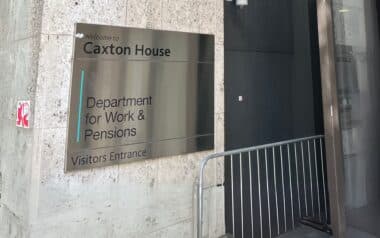Work and Pensions Secretary Liz Kendall has announced a government review of the state pension age, potentially paving the way for an increase in the coming years. Speaking in central London, Kendall highlighted the rising threat of pensioner poverty and warned of the need for urgent reforms to ensure a sustainable and fair system for future retirees.
The review follows mounting concerns over the long-term viability of the state pension system, with experts forecasting that a significant portion of the population will retire with inadequate income.
Age UK’s latest research reveals that individuals planning to retire in 2050 are set to receive £800 less per year than today’s pensioners. At the same time, the cost of maintaining the government’s triple lock guarantee for pensions is estimated at £31 billion annually.
Growing Challenges for Future Pensioners
Liz Kendall pointed out the looming challenges facing future retirees, stressing that unless changes are made, pensions will fail to provide sufficient support for many. According to the Work and Pensions Secretary, the number of pensioners is projected to increase by over 50% by the 2070s, while the working-age population will grow at a much slower rate.
This demographic shift, combined with the current saving habits of workers, presents a significant risk to the financial well-being of future retirees.
She noted that almost half of the working-age population is not saving anything towards their retirement, while those who do save are often contributing too little. Kendall emphasized that these trends must be addressed if the government is to avoid a future where pensions no longer offer enough to live on.
“Put simply, unless we act, tomorrow’s pensioners will be poorer than today’s, because people who are saving aren’t saving enough for their retirement. And crucially, because almost half of the working age population isn’t saving anything for their retirement at all,”” she said.
The Challenge of the Triple Lock and Political Context
The triple lock system, introduced in 2010, guarantees that the state pension will rise each year by either 2.5%, inflation, or the average earnings growth rate—whichever is highest. However, this policy comes with a hefty price tag, with the current cost standing at £31 billion annually, a figure that continues to rise.
Critics argue that the triple lock may be unsustainable in the long run, particularly with the increasing number of pensioners.
Kendall’s announcement also comes at a time when the government is under pressure from both internal and external sources. The Labour party recently faced significant rebellion from its backbenchers over proposed cuts to the welfare bill, which primarily targeted disability payments.
The review into the pension age could similarly provoke heated debates, particularly given the political sensitivity of the issue, especially in light of Labour’s previous pledge to compensate the WASPI women, who were affected by changes to the state pension age.









